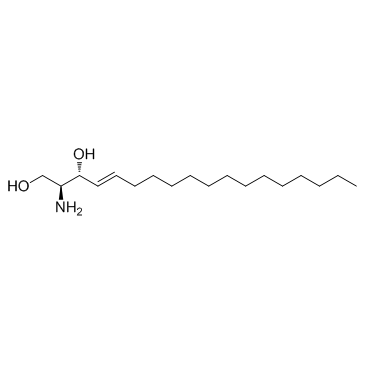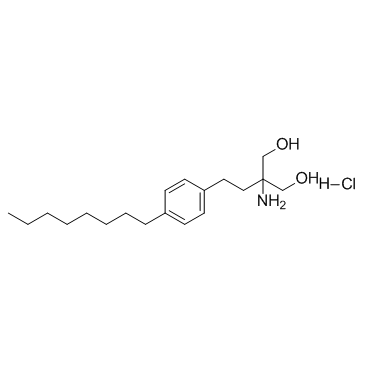Switching from natalizumab to fingolimod in multiple sclerosis: a French prospective study.
Mikael Cohen, Elisabeth Maillart, Ayman Tourbah, Jérôme De Sèze, Sandra Vukusic, David Brassat, Olivier Anne, Sandrine Wiertlewski, William Camu, Sylvie Courtois, Aurélie Ruet, Marc Debouverie, Emmanuelle Le Page, Olivier Casez, Olivier Heinzlef, Bruno Stankoff, Bertrand Bourre, Giovanni Castelnovo, Audrey Rico, Eric Berger, Jean-Philippe Camdessanche, Gilles Defer, Pierre Clavelou, Abdullatif Al Khedr, Hélène Zephir, Agnès Fromont, Caroline Papeix, Bruno Brochet, Jean Pelletier, Christine Lebrun
文献索引:JAMA Neurol. 71(4) , 436-41, (2014)
全文:HTML全文
摘要
The safety and efficacy of switching from natalizumab to fingolimod have not yet been evaluated in a large cohort of patients with multiple sclerosis (MS) to our knowledge.To collect data from patients with MS switching from natalizumab to fingolimod.The Enquête Nationale sur l'Introduction du Fingolimod en Relais au Natalizumab (ENIGM) study, a survey-based, observational multicenter cohort study among MS tertiary referral centers. Participants were patients for whom a switch from natalizumab to fingolimod was planned. Clinical data were collected on natalizumab treatment, duration and management of the washout period (WP), and relapse or adverse events during the WP and after the initiation of fingolimod.Occurrence of MS relapse during the WP or during a 6-month follow-up period after the initiation of fingolimod.Thirty-six French MS tertiary referral centers participated. In total, 333 patients with MS switched from natalizumab to fingolimod after a mean of 31 natalizumab infusions (female to male ratio, 2.36; mean age, 41 years; and Expanded Disability Status Scale score at the initiation of natalizumab, 3.6). Seventy-one percent were seropositive for the JC polyomavirus. The Expanded Disability Status Scale score remained stable for patients receiving natalizumab. Twenty-seven percent of patients relapsed during the WP. A WP shorter than 3 months was associated with a lower risk of relapse (odds ratio, 0.23; P = .001) and with less disease activity before natalizumab initiation (P = .03). Patients who stopped natalizumab because of poor tolerance or lack of efficacy also had a higher risk of relapse (odds ratio, 3.20; P = .004). Twenty percent of patients relapsed during the first 6 months of fingolimod therapy. Three percent stopped fingolimod for efficacy, tolerance, or compliance issues. In the multivariate analysis, the occurrence of relapse during the WP was the only significant prognostic factor for relapse during fingolimod therapy (odds ratio, 3.80; P = .05).In this study, switching from natalizumab to fingolimod was associated with a risk of MS reactivation during the WP or shortly after fingolimod initiation. The WP should be shorter than 3 months.
相关化合物
| 结构式 | 名称/CAS号 | 分子式 | 全部文献 |
|---|---|---|---|
 |
D-鞘氨醇
CAS:123-78-4 |
C18H37NO2 | |
 |
盐酸芬戈莫德
CAS:162359-56-0 |
C19H34ClNO2 |
|
Sphingosine kinase 1 contributes to leptin-induced STAT3 pho...
2015-01-01 [Breast Cancer Res. Treat. 149(1) , 59-67, (2015)] |
|
Sphingosine kinase 1 isoform-specific interactions in breast...
2014-11-01 [Mol. Endocrinol. 28(11) , 1899-915, (2014)] |
|
Fungal metabolite myriocin promotes human herpes simplex vir...
2015-01-01 [Life Sci. 120 , 31-8, (2015)] |
|
Regulation of SREBPs by Sphingomyelin in Adipocytes via a Ca...
2015-01-01 [PLoS ONE 10 , e0133181, (2015)] |
|
Disruption of sphingolipid metabolism augments ceramide-indu...
2015-04-03 [Autophagy 11 , 653-69, (2015)] |